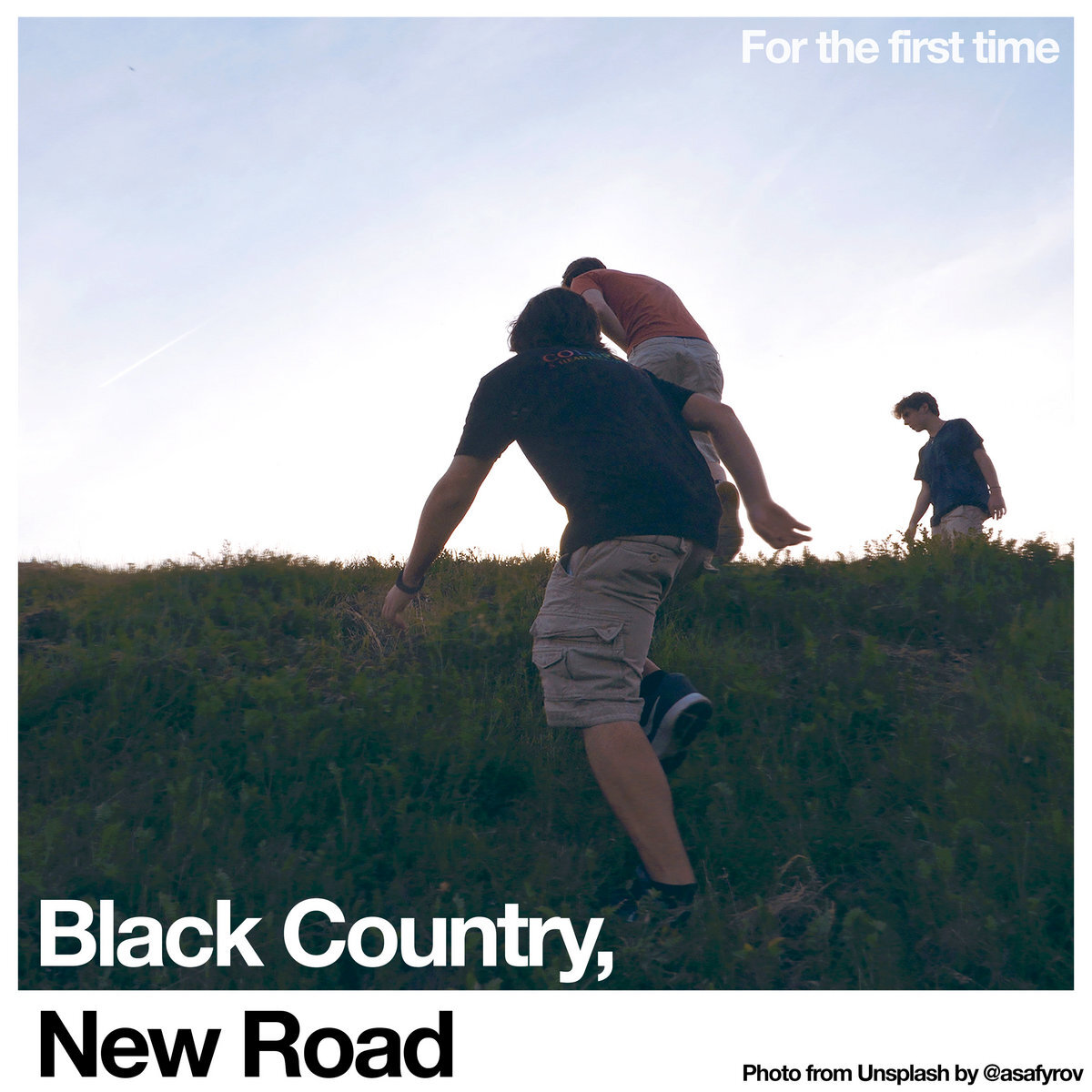by Alyana Vera (@alyanavera)
Black Country, New Road aren’t easy to pin down; are they a klezmer outfit, skronked out rock band, or in their own words, “the world’s second best Slint tribute act”? Like their math rock counterparts Black Midi, Black Country, New Road are often lumped into the “post-punk” genre with bands like Squid and Shame because their lyrics bristle with an anxious energy and are either spoken or shouted. Which is fine, but if “Sunglasses” and “Athens, France” were the sum total of Black Country, New Road’s style, it would make them terribly one-note. Early reporting on Black Country, New Road focused almost entirely on the band’s connection to the South London scene—which itself revolves around beloved misfits haven The Windmill—and their early singles’ air of neuroticism. One journalist even described them as “laureates of anxiety” (the same article also prematurely voiced that “2020 will be their year,” which is funny because 2020 was nobody’s year). The singles that first activated the hype machine around Black Country, New Road, “Athens, France” and “Sunglasses,” are revised in an almost self-conscious way on For the First Time.
Part of the delight around Black Country, New Road has been the way that singer and lyricist Isaac Wood places literary allusions next to pop-culture references. He seems to regret how this has caused both fans and the press to focus on the band’s lyrics, having cut the line in “Athens, France” about Ariana Grande’s pop hit “thank u, next” and replacing much of the first verse with “And write the words I’ll one day wish that I had never said / Now all that I became must die before the forum thread.” The focus of the song has shifted away from describing (in poor light) an overbearingly sexual girlfriend to the narrator’s own revelations as Wood swaps out “she” for “I”. About two minutes in the band winds down and the instruments flutter behind Wood’s voice as he seems to reference Black Country, New Road’s previous band, Nervous Conditions, which disbanded after lead singer Connor Browne was accused of sexual assault.
It’s on these slower moments that Wood seems to split from the narrator, leading to more reflective lyrics like “It’s a great wide gulf between intentions and what ground met me” and “I have learned so little / From all I lost in two thousand and 18.” In the wake of Nervous Conditions’ demise, Black Country, New Road’s early singles attempted to skewer masculinity—an effort that Wood has admitted probably didn’t translate and resulted in “slightly reductive and one-dimensional portrayal of women” that he regrets. On For the First Time, “Athens, France” becomes less of a song about sexual insecurity and more about the band’s insecurity about how they are perceived and received.
The updates on the album version of “Sunglasses” continue to reflect a resistance to being type-cast. Over a minute of haunting, distorted guitars are tacked onto the beginning before the gentle strum that opens the original track emerges. A few of the lyrics have changed—”Big Pharma” gets switched out for “Pig” and the narrative switch to the girlfriend’s point of view is dialed back—but it’s still the same nosedive into a potential future where the mundane is slightly horrific. The real difference is Wood’s buoyant delivery, which makes the new version of “Sunglasses” feel almost like a reprise of the original. Wood graduates from the sprechgesang style that defined the band’s early work into full-on singing as he repeats the refrain. This singing style reaches its peak in “Track X,” a lovely example of what happens when the band chooses harmony instead of chaos. It’s quietly devastating, with the sweet violin, sprightly saxophone, and warm backing vocals making lyrics like “I told you I loved you in front of Black Midi” sound forlorn.
It’s interesting that Black Country, New Road have decided to release updated versions of the tracks that were their introduction to the world. Perhaps they aren’t overly sentimental. Maybe this album is an attempt to circumvent classification. Black Country, New Road have already done their best to separate their persona from their music—the band’s visual presence is almost entirely made up of free-to-use stock images, done to create an aesthetic separate from the band’s specific context. The decision to start off For the First Time with “Instrumental”—a sprawling klezmer-forward track full of intrigue that inexplicably brings to mind the Incredibles soundtrack—feels in line with the band’s ethos of letting the instruments do the talking. On “Science Fair,” the instruments overshadow the lyrics, from bassist Tyler Hyde’s and guitarist Luke Mark’s nervy riffs, to Georgia Ellery’s cloying violin (which you can hear more of on her side-project, Jockstrap), drummer Charlie Wayne’s steady beat (previously of shoegazers Ugly), and the explosive strut of Lewis Evans’ saxophone. Even the band’s name, created by a random Wikipedia generator, contributes to their opaque nature. Black Country, aka the Midlands region of England, functions as the UK equivalent of “middle America,” a tabula rasa onto which you can project your own experiences.
Black Country, New Road may flinch away from revealing too much to the public eye, but wouldn’t you if you had attracted a media frenzy after releasing just two songs? On For the First Time, Black Country, New Road makes the case that the only thing limiting them is our imagination. Their debut album pushes them past their early work and stylistically into the future, showing just how much of what we associated with the band is ephemeral. “What we built must fall to the rising flames,” Wood sings on the finale “Opus.” Black Country, New Road is walking on scorched earth, fashioning their own path while we’re still admiring the smoldering ashes.

